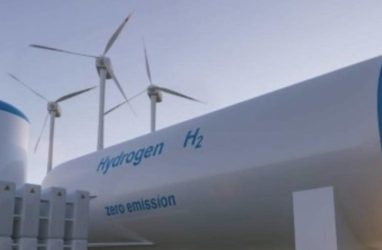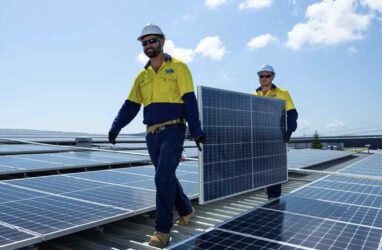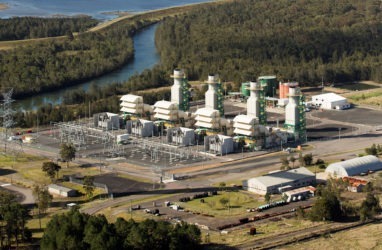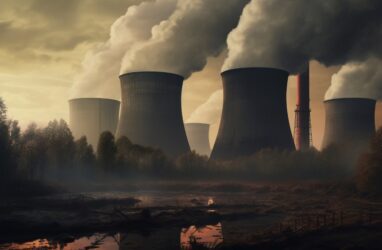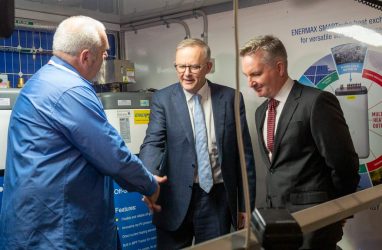Feed aggregator
Spring is "fastest-warming" season in the UK
Cyclone Alfred is expected to hit southeast Queensland – the first in 50 years to strike so far south
NZ experts warn govt over commitment to 2030 Paris target
Guarantee of Origin rules for renewable superpower plan hit below the baseline
The post Guarantee of Origin rules for renewable superpower plan hit below the baseline appeared first on RenewEconomy.
Federal Labor backs “bill busting” energy upgrades for social housing, including home batteries
The post Federal Labor backs “bill busting” energy upgrades for social housing, including home batteries appeared first on RenewEconomy.
“More megawatt-hours for the same dollars:” Battery prices coming down as demand soars
The post “More megawatt-hours for the same dollars:” Battery prices coming down as demand soars appeared first on RenewEconomy.
Baseload outages and generator rebidding: How energy customers got screwed by high prices
The post Baseload outages and generator rebidding: How energy customers got screwed by high prices appeared first on RenewEconomy.
How to prepare for a cyclone, according to an expert
CP Daily: Sunday March 2, 2025
Voluntary carbon market faces integrity, transparency hurdles despite growth prospects -report
Nuclear power struggling to maintain current level of stagnation, let alone achieve any growth
The post Nuclear power struggling to maintain current level of stagnation, let alone achieve any growth appeared first on RenewEconomy.
Planes are having their GPS hacked. Could new clocks keep them safe?
The 'Time Lords' racing to tackle the threat of GPS jamming
Albanese’s climate report card: “D for delivery” as progress stalls
The post Albanese’s climate report card: “D for delivery” as progress stalls appeared first on RenewEconomy.
Ghana to sell 24 mln Article 6 credits
Investment funds show strong EUA price forecasting ability, Commitment of Traders analysis finds
Leakage is a risk with carbon storage projects – NZ’s new framework must be clear on how to deal with this liability
The Guardian view on Labour eyeing green cuts: they would undermine growth and climate goals | Editorial
Bold pledges to fund climate projects now appear under threat, exposing deeper fiscal constraints and policy dilemmas within the government
In October, the prime minister, chancellor and energy secretary pledged billions to kickstart the UK’s first carbon capture projects – one of the biggest green spending promises of the parliament. By December, Ed Miliband was signing contracts, Sir Keir Starmer vowed to “reignite our industrial heartlands” and Rachel Reeves warned that without bold action, Britain would be stuck with low growth and falling living standards. More importantly, net zero targets wouldn’t be met without removing carbon dioxide from the atmosphere.
Fast forward and the Treasury is, reportedly, preparing to scrap the £22bn plan, after economic growth failed to materialise. What a difference a few weeks make.
Continue reading...Dolomites soundscape and a nightingale’s song win nature music prize
Inaugural Tune into Nature prize is aiming to highlight how the natural world is central to creative life
One is a dreamy soundscape collected from the peaks of the Dolomites. The other is a drum’n’bass track that samples a nightingale’s quickfire song.
These contrasting tunes have won the inaugural Tune into Nature music prize, a contest that seeks to showcase new music by upcoming artists that is inspired by the natural world.
Continue reading...Bleat all about it! Lambing long weekends in UK are the new city break
British farms laying on ‘lamb watch’ holidays for tourists seeking a return to nature – and fluffy hugs
In a shed in the Malvern Hills, lambs struggle clumsily to their feet as holidaymaking couples look on.
Clare John, the third generation in her family to farm these 50 acres of Worcestershire pasture, began offering lambing-themed breaks two years ago in response to a surge of customer requests. Rowley Farm’s holiday cottages are block-booked for the 2025 spring lambing season, which traditionally peaks around Easter.
Continue reading...



